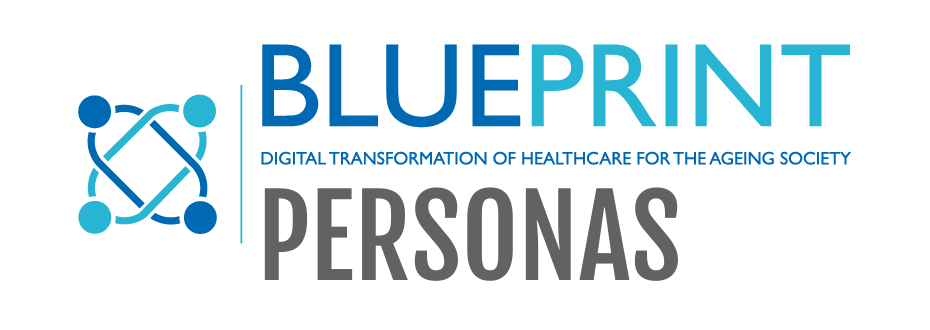Anna

Name
Anna
Age
3
Country
Italy
Area
rural
Life course
child
Need
Chronic conditions and / or social needs
Connectivity
broadband, smart phone
Anna is a 3-year-old baby living with her parents in a mountain village 55km away from the urban area and the referring hospital. She was born at 29 weeks, weighting less than 500g. She was hospitalised for 14 months and then discharged with an Integrated Home-Based Care Program. Anna is affected by bronchopulmonary dysplasia, hypothyroidism, has cognitive delay and is recovering from stage 1 retinopathy of prematurity. Anna’s mother had to leave her job to provide care to her. Anna has invasive mechanical ventilation dependency, lasting at night-time and during limited day-time hours, due to a permanent tracheostomy. She also needs cough assist device four times a day to aid with clearance of secretions. Anna has neurocognitive disorders related to language and play activity issues, with generally poor socialisation and communication skills. She receives weekly medical home care assistance by the anaesthetist for patient-ventilator system and tracheostomy check, physiotherapist, and speech therapist. She periodically receives Day Hospital neurologic, nutritional, ophthalmologic, endocrinology and pneumological consultancy and she regularly practices capno-oximetry in short-term hospitalisation. Ordinary hospitalization is limited to acute events not manageable at home (at present, one hospitalisation for acute pulmonary superinfection).
Internet usage
Mobile device skills
Affinity to new tech
Digital Health Literacy
Assistance (ICT use)
What's important to Anna
– Regular and predictable routine
– Experienced caregiver assistance
– Parenting and stimulation programs to improve cognitive and social skills
– Experienced caregiver assistance
– Parenting and stimulation programs to improve cognitive and social skills
Health concerns
– Bronchopulmonary dysplasia
– Hypothyroidism
– Retinopathy of prematurity
– Neuro-cognitive delay
– Hypothyroidism
– Retinopathy of prematurity
– Neuro-cognitive delay
Daily living
– Breaking the routine upsets her
– Not inclined to socialisation with her peers
– Strictly dependent on the relationship with the mother, her main caregiver
– Not able to communicate verbally her needs
– She loves to spend the time outdoor
– Not inclined to socialisation with her peers
– Strictly dependent on the relationship with the mother, her main caregiver
– Not able to communicate verbally her needs
– She loves to spend the time outdoor
Health tests
– Thyroid function (every 2 months)
– Capnometryand oximetry (every 3 months)
– Annual eye test
– Pneumological counselling (every 3 months)
– Neurological counselling (every 3 months)
– Nutritional counselling (every 3 months)
– Capnometryand oximetry (every 3 months)
– Annual eye test
– Pneumological counselling (every 3 months)
– Neurological counselling (every 3 months)
– Nutritional counselling (every 3 months)
Events, issues & personal concerns
– Tracheostomy nursing care and regular airway secretions clearance
– Vital parameters monitoring
– Recognition of emergency situations and acute respiratory complications
– Stimulate speech and verbal communication
– Reducing her social anxiety
– Stimulate gaming activities
– Vital parameters monitoring
– Recognition of emergency situations and acute respiratory complications
– Stimulate speech and verbal communication
– Reducing her social anxiety
– Stimulate gaming activities
Treatment: medications, therapies, etc.
– Invasive mechanical ventilation and cough assist
– Thyroid hormones replacement therapy
– Dietician to oversee her diet
– Leukotrienes for bronchopulmonary dysplasia
– Speech and language therapy and physiotherapy
– Thyroid hormones replacement therapy
– Dietician to oversee her diet
– Leukotrienes for bronchopulmonary dysplasia
– Speech and language therapy and physiotherapy
Own resources & assets / support
– Very close to her family and relatives
– Public health system provides medications and medical devices, along with medical and technical support
– Speech therapy is borne by the parents
– Public health system provides medications and medical devices, along with medical and technical support
– Speech therapy is borne by the parents
Care professional concerns
– Prevention of acute respiratory complications
– Monitoring the effectiveness of mechanical ventilation in relation to patient’s needs
– Inadequate verbal rehabilitation
– Lack of ongoing support on the local territory (no playroom/rehabilitation centre)
– Far from the nearest hospital in case of emergency
– Monitoring the effectiveness of mechanical ventilation in relation to patient’s needs
– Inadequate verbal rehabilitation
– Lack of ongoing support on the local territory (no playroom/rehabilitation centre)
– Far from the nearest hospital in case of emergency
Needs
-Tools for real-time remote control of mechanical ventilator settings and vital parameters
– Electronic consultations and appointments
– 24/7 eHealth call centre (e.g. run by nurses)
– Regular communication between carers (family, doctors, speech therapist, etc.)
– Intensification of verbal rehabilitation
– Integrated family caregiver support program.
– Electronic consultations and appointments
– 24/7 eHealth call centre (e.g. run by nurses)
– Regular communication between carers (family, doctors, speech therapist, etc.)
– Intensification of verbal rehabilitation
– Integrated family caregiver support program.
